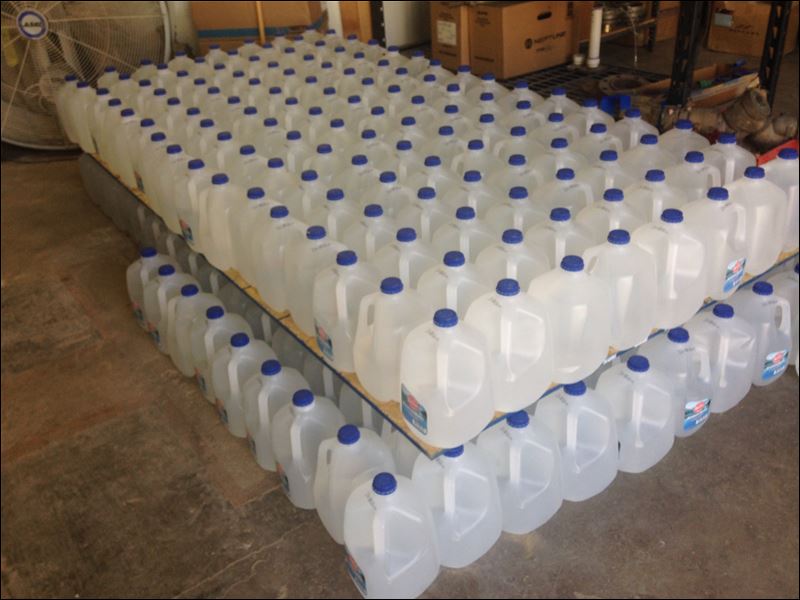The Episcopal Diocese of Michigan has been aware of the situation in Flint, located in the neighboring Diocese of Eastern Michigan, where water has been contaminated with lead, for a while. It is also concerned with stepped-up efforts by Detroit authorities to cut off water supplies for non-payment. In the state with the longest fresh-water coastline in the country, water has become a commodity fraught with danger and dismay.
A blog article by the Diocese lays out the background to the current crisis in Flint, which began back in April 2014 with the switching of the city’s water supply from Detroit to the Flint River. As the more corrosive river water began to flow through old and unprotected pipes, it washed out lead and contaminants, which were then delivered through the faucets of Flint residents in their kitchens, bathrooms, and schools.
Dr Marc Edwards, professor of engineering at Virginia Tech, and his team of volunteers found that at least a quarter of Flint households have levels of lead above the federal level of 15 parts per billion (ppb) and that in some homes, lead levels were at 13,200 ppb. In an interview with Public Radio International, Edwards said: “It was the injustice of it all and that the very agencies that are paid to protect these residents from lead in water, knew or should’ve known after June at the very, very latest of this year, that federal law was not being followed in Flint, and that these children and residents were not being protected. And the extent to which they went to cover this up exposes a new level of arrogance and uncaring that I have never encountered.”
The church in Michigan is working to right that injustice by addressing not only the current crisis, but by recognizing the systems of injustice behind it.
The Rev. Dan Scheid, rector of St Paul’s Episcopal Church in Flint, told ENS:
“This is a social-justice issue. The poor and marginalized simply were not listened to by those in power, they were repeatedly told the water is fine, the water is fine, and at some point they realized that the water wasn’t good and it’s going to take additional reporting and digging to find out who knew what when….October 1st [2015] is when the governor said he knew, and that’s when things started to change.”
St Paul’s has become a hub for assistance to the affected residents, benefiting from grants from dioceses across Michigan, and from Episcopal Relief & Development. The church is also looking into supporting healthy nutrition for the children of Flint beyond the water supply, since, they say, it is known that foods high in Vitamin C can help in recovery from the effects of lead poisoning.
But the work of the church goes beyond donations of food, water, and money, says Scheid.
“It’s not just in communities like Flint where poor and marginalized citizens are without voice, it’s in cities, towns and rural areas across the United States. Aside from financial contributions, one way Episcopalians can stand in solidarity with Flint’s residents is to address issues of injustice and inequality in their own communities….The church has the moral and civil authority to lift those voices up; the church should take care of those issues in its own context. That is one way to be responsive to what’s happening in Flint.”
Read more from the Episcopal Diocese of Michigan here; and find ways to donate and assist here.

